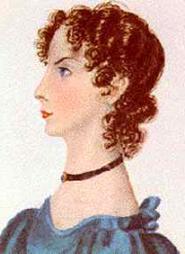 Stephen King is a sick-sick man, but clearly incredibly talented to write these books. After reading Cujo, I wasn’t sure I’d read another, but my books into movies book group once again selected one. As I’m writing this I haven’t seen the film yet, but I’m sure I’ll be terrified. I’m not sure if I’ll read more of King, other than 11/22/63, but if they’re all like this I’d definitely consider it, even if I do get nightmares!
Stephen King is a sick-sick man, but clearly incredibly talented to write these books. After reading Cujo, I wasn’t sure I’d read another, but my books into movies book group once again selected one. As I’m writing this I haven’t seen the film yet, but I’m sure I’ll be terrified. I’m not sure if I’ll read more of King, other than 11/22/63, but if they’re all like this I’d definitely consider it, even if I do get nightmares!
I’m a little torn on this novel, as with most novels that are just outside the realm of (my) possibility I’m not sure how much to enjoy it. If it’s something I could see happening, even if it’s a super stretch, then I get a little freaked out by it, and this is definitely one of those instances. And let’s face it with the number of weirdos out there this book is totally feasible! I mean it could happen today, even with all of the technology in modern society I could easily see this happening.

 Where to begin…seriously. I finished this novel Monday night after a whirlwind read—I could not put it down. I stumbled across this novel on Net Galley and requested a copy from the publisher and I am incredibly glad I did! The following is my honest response and the views/opinions are my own. I did not receive compensation to review the novel.
Where to begin…seriously. I finished this novel Monday night after a whirlwind read—I could not put it down. I stumbled across this novel on Net Galley and requested a copy from the publisher and I am incredibly glad I did! The following is my honest response and the views/opinions are my own. I did not receive compensation to review the novel. Every book blogger should read this memoir at some point. I don’t remember when I first came across the title but it’s been in the back of my mind to read for quite some time, but funnily enough never made it to my to-be-read list. (Book bloggers, this may be contentious, but if you don’t want to read the post at least check out a quote on book bloggers and modern reading in the middle of the post and the following paragraph.)
Every book blogger should read this memoir at some point. I don’t remember when I first came across the title but it’s been in the back of my mind to read for quite some time, but funnily enough never made it to my to-be-read list. (Book bloggers, this may be contentious, but if you don’t want to read the post at least check out a quote on book bloggers and modern reading in the middle of the post and the following paragraph.)

